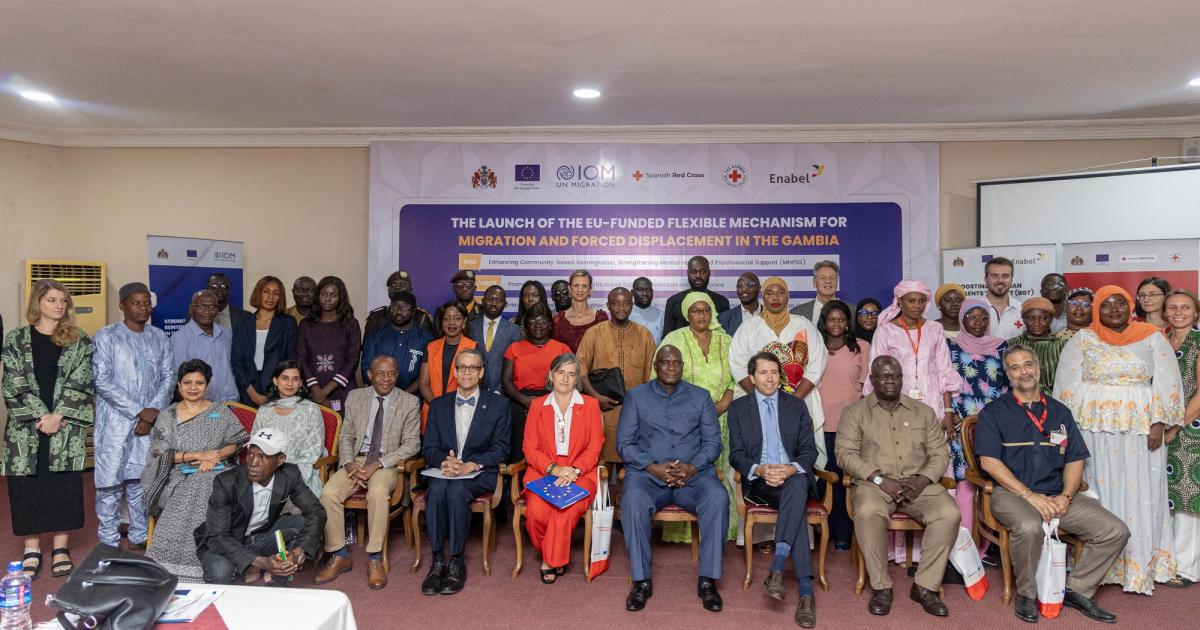
The European Union (EU), in partnership with the International Organization for Migration (IOM), the Belgian Agency for International Cooperation (Enabel), the Gambian Red Cross Society (GRCS) and the Spanish Red Cross (SpRC), has launched a new initiative aimed at strengthening social support for migrants, providing sustainable reintegration assistance to returnees, and nurturing Gambian talent.
Funded by the European Union under the Flexible Mechanism for Migration and Forced Displacement, the three project actions are valued at GMD 1,007,583,815 (EUR 12 million).
The initiatives will enhance long-term reintegration for returnees; support local entrepreneurship; foster private sector and diaspora partnerships; and promote safe, regular and opportunities-driven mobility for talented Gambians.
“We remain determined to strengthen governance structures, enhance data systems, and ensure that migration contributes positively to national development, social cohesion, and the well-being of all Gambians,” said Hon. Sering Modou Njie, Minister of Foreign Affairs, International Cooperation and Gambians Abroad (MoFA).
“The projects we are launching today speak directly to this vision and align with our broader goal of transforming migration into a catalyst for development—ensuring that human mobility becomes a pathway to empowerment, not vulnerability.”
Collectively, the three projects will support the Government of The Gambia’s ongoing efforts to reinforce migration governance, expand job creation and entrepreneurship opportunities, and pilot short-term mobility schemes that strengthen private sector partnerships and attract diaspora-driven investment into local businesses.
Their complementary design and strategic alignment will play a crucial role in addressing both the immediate and long-term needs of returnees and migrants, while promoting socioeconomic development across communities nationwide.
EU Ambassador to The Gambia, Imma Roca i Cortés, emphasized the shared vision behind the initiative: “Migration is not a problem to be solved, but a reality to be managed—responsibly, humanely, and sustainably.” She added: “These projects clearly demonstrate the deep commitment between the European Union and The Gambia to manage migration in all its dimensions in a way that protects human dignity and fosters hope for the future.”
The initiative comes at a critical moment. Many Gambians remain stranded along migration routes to North Africa and Europe, unable to continue their journeys and with limited prospects of reaching their intended destinations.
Without the resources to return home, many face prolonged hardship. Meanwhile, high youth unemployment and underemployment continue to drive irregular migration—popularly known as “the back way.”
According to IOM data, The Gambia ranked among the top five countries of origin for irregular arrivals in Europe in 2024.



